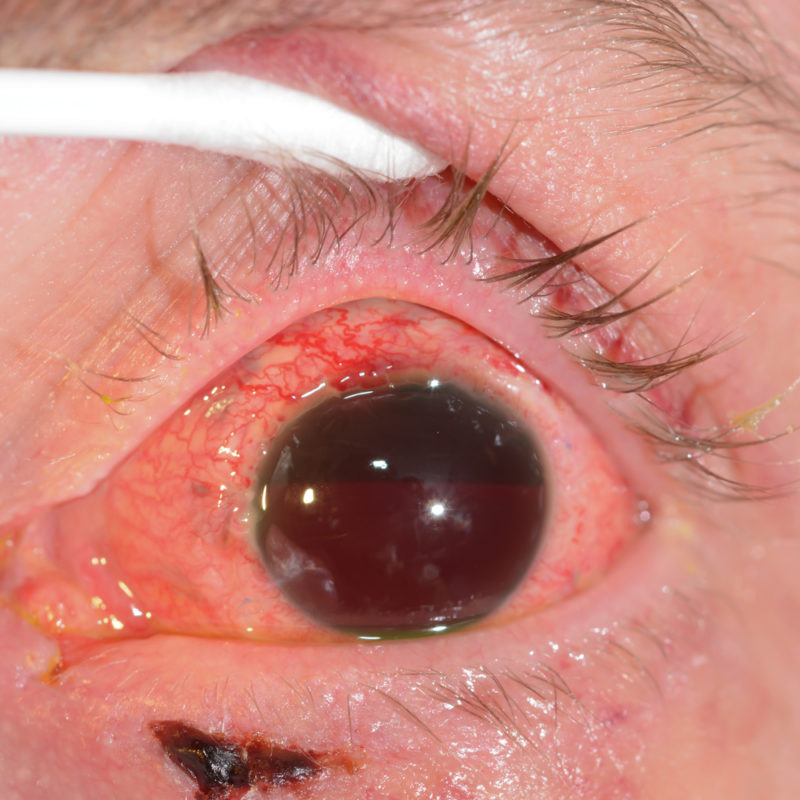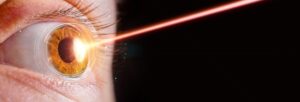
If you aren’t familiar with eight ball fracture, perhaps you’ve heard of its medical name, hyphema. If that doesn’t ring a bell, you, no doubt, have seen it, in yourself or someone else — a bright red spot on the white part of the eye.
Eight Ball Fracture Is Not a Game!
You won’t be alone if you immediately envisioned Sheldon Cooper’s fortune telling toy or a popular pool game. However, 8 ball fracture isn’t a game and is evidence of severe eye injury that needs immediate medical attention.
A hyphema is bleeding or broken blood vessel in the eye that pools in the eye anterior chamber, the area between the cornea (the colored part of the eye) and the iris (the black circle that enlarges and shrinks in response to light or the lack of it).
It’s not the same as subconjunctival hemorrhage, a painless but bright red spot that appears in the sclera, or white part of the eye.
A hyphema is usually painful and has several grades of severity ranging from 0, where the blood pooling can only be observed through microscopic examination, to 4, a total hyphema that fills the entire anterior chamber. This most severe form is the so-called 8 ball fracture. In between, there are different grades that measure how much blood has pooled.
In addition to pain, a person with a hyphema may also have distorted or blurred vision, headache, and sensitivity to light. The last two indicate that there may be intraocular pressure or high eye pressure, which can lead to glaucoma and permanent loss of vision.
What Causes a Hyphema?
Hyphema is usually the result of a trauma to the eye. And, while we may joke about a person’s black eye, it’s important to make sure that it isn’t hiding a hyphema, detached retina, cataract, or concussion. For that reason, hard hits to the eye should be examined by a medical professional. People with hemophilia or diabetes, or who take blood thinners can experience a spontaneous hyphema. Hyphema rarely occurs after eye surgery and is considered a complication.
Hyphema Treatment Includes Restrictions on Activity and Medication
Hyphema treatment depends on the severity of the case. Virtually all patients with it are told to limit their physical activity, wear an eye patch as it heals, and sleep with their heads elevated to help the blood clear out and prevent additional bleeding. Some may be put on bed rest.
More severe cases may require prescription anti-inflammatory or pain medication, including steroid eye drops to soothe inflammation or dilating eye drops to relieve pain. Do not take NSAIDs like ibuprofen because these can trigger re-bleeding in the eye.
There will be follow-up visits to evaluate the healing and assess the damage. It’s important to understand that re-bleeding can occur days after the injury has been assessed.
If the hyphema does not clear up, surgery may be required because the blood can prevent the eye canals from draining and result in intraocular pressure.
Contact our Eye Care Center in Atlanta Georgia to schedule an appointment.
Contact Us
If you have more questions about LASIK procedures, get in touch with us.
Related Blogs

Who Should Not Have Laser Eye Surgery
Laser eye surgery, commonly known as LASIK (Laser-Assisted In Situ Keratomileusis), has revolutionized the world of vision correction. It’s a procedure that has enabled millions

LASIK eye surgery: What is LASIK and how does it work?
What Is LASIK? Experts categorize LASIK as a refractive eye surgery in which lasers are used to correct vision problems. LASIK corrects several refractive errors,

Everything You Need To Know About The Lipiflow Treatment
LipiFlow is often referred to as a ground-breaking technology that is able to treat dry eye issues caused by meibomian gland dysfunction, or MGD. Experts
